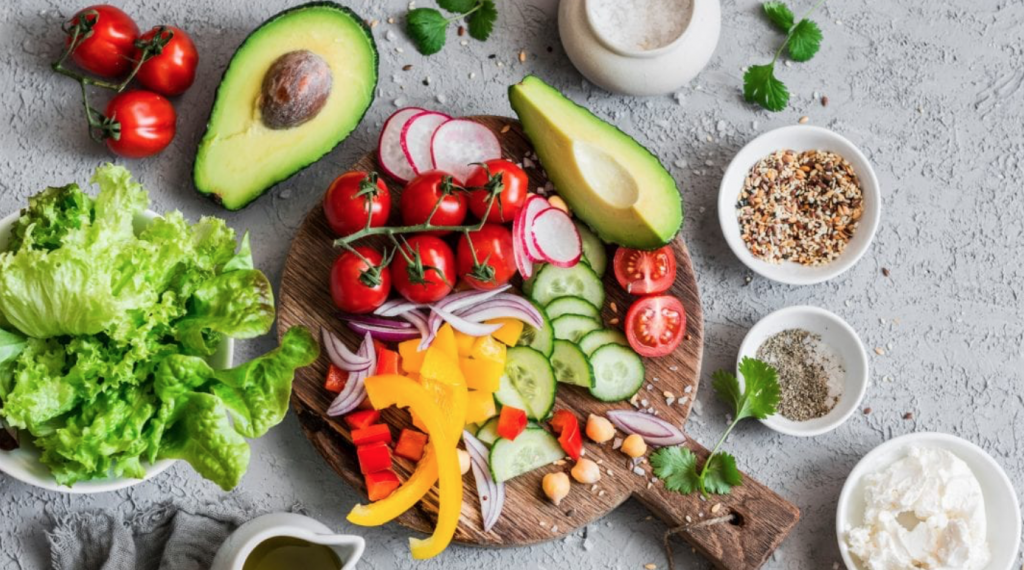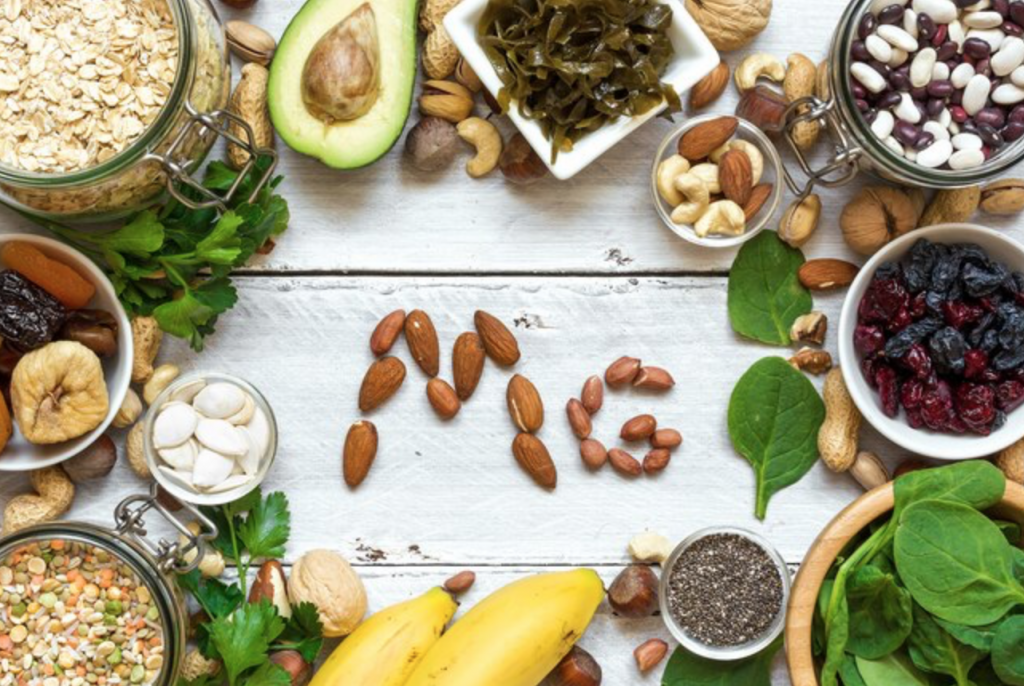Nutrition tips for older adults

Resistance training and bone health
June 23, 2020
Healthy joints: nutrition and lifestyle tips
July 9, 2020Balancing physical activity and a healthful diet is the best recipe for health and fitness. Set a goal to be physically active at least 30 minutes every day — this even can be broken into three 10-minute sessions throughout the day.
Nutrition does not need to be complicated as long as you stick to few general rules to keep your plate healthy and satisfying.
Healthy Food Choices
Nutrition program for older adults should include:
- Complex carbohydrate-rich foods like sweet potatoes and brown rice, legumes, etc.
- Protein-rich foods like fish, lean meats, nuts, legumes, soy products, dairy if not intolerant, etc.
- Fruits and vegetables (five portions a day)
- Healthy fats (extra virgin olive oil, olives, avocado, nuts and seeds, etc.)
Besides this, you can prepare meals rich in the following nutrients:
- Foods high in Omega-3 Fatty Acids and Monounsaturated Fatty Acids
These fatty acids are important for people of all ages including elderly people as they help prevent inflammation which can cause cancer, rheumatoid, arthritis, and heart disease, among others.
It has also been found to slow down the progression of Macular Degeneration (AMD)—a condition that leads to poor vision. Recent evidence has shown that these fatty acids can reduce the risk of Alzheimer’s disease and keep the brain alert.
Omega-3 fatty acids can be found in fish mainly sardines, herring, tuna, mackerel, and salmon. They are also found in flaxseed, soybeans (fresh soy beans: edamame included) and soy products (tofu, soy milk, tempeh, soy oil, etc.), canola oil, and walnuts. Monounsaturated fatty acids are found in virgin olive oil, olives, avocados and variety of nuts, like macadamia, peanuts and peanut butter.
Polyunsaturated and monounsaturated fats should be a part of everyday diet. Ingestion of saturated fats should be less than 10% of total calories (keep in mind that 1 g of fat has over double kcal than 1 g of carbohydrates or protein, 9kcal/1g and 4/1g, respectively). Nutritionists recommend a serving of omega-3 fatty acids in fish form twice a week. Supplements are available and are a good option.

- Foods rich in calcium
Calcium helps our bodies build and maintain healthy bones. It has also been known to lower blood pressure. Unfortunately, surveys have shown that as we grow older we consume less calcium.
The body’s need for calcium is so essential that, if you are not getting enough calcium, it begins to reabsorb it from the bones. This makes your bones fragile and brittle leading to osteoporosis. Foods rich in calcium are mainly dairy products such as milk, yogurt, and cheese, as well as in leafy green vegetables and cereals fortified with calcium. The World Health Organization recommends that people aged above the age of 50 consume 1200 mg of calcium daily. This translates to 4 cups of fortified orange juice, milk, soy, or almond milk. Some individuals find it difficult to absorb this much calcium daily through diet, in which case it can be taken as a supplement.
- Foods rich in fiber
As we get older, our digestive system slows down. The walls of the gastrointestinal tract thicken and the contractions are slower and fewer which may lead to constipation. Foods rich in fiber promote proper digestion by moving food through the digestive tract. These foods have also been known to reduce the risk of heart disease.
Foods rich in fiber include vegetables, legumes, nuts and seeds, wholegrain cereal, wholegrain bread and pasta, brown rice, brown bread, fruits, etc.

- Water
As you age, your body’s ability to conserve water decreases, so you don’t feel thirsty as often. However, your body still needs water. Dehydration causes drowsiness and confusion among other side effects so it is essential to stay hydrated. If you are taking the recommended high fiber diet, you need to drink a lot of water this is because fiber absorbs plenty of water.
In order not to get overwhelmed by the quantity, you can put the water in small bottles and drink it throughout the day as opposed to storing it in a big container. The surest way to check for dehydration is to observe your urine. If it is light and transparent, that means you are hydrated, if it is dark or bright yellow and cloudy that is a sign of dehydration. There is an exception for seniors with kidney or liver disease; where a suitable amount of water must be discussed with healthcare provider.

- Foods rich in iron
Iron plays a vital role in the body. It produces hemoglobin which carries oxygen in the blood from the lungs to the rest of the body. When you are not consuming enough iron, there’s a limited supply of oxygen to the body tissues. This results in feeling tired and lethargic. Iron deficiency is known as anemia. Foods rich in iron are: meats (especially red meat like beef), organ meats, shellfish, poultry, fish. Vegetable sources include: beans and lentils, tofu, cashews, dark green leafy vegetables such as spinach, fortified breakfast cereals, whole-grain and enriched breads, baked potatoes, pumpkin seeds and even dark chocolate!
- Foods rich in vitamin C
Vitamin C has antioxidant properties which are believed to prevent cancer and heart disease. It is also involved in the production of collagen, which gives your skin elasticity and gets rid of dead skin cells giving you healthy skin. It also helps repair bones and teeth and aids in healing wounds. This essential vitamin can be found in fruits and vegetables, like kiwi, orange, berries, bell peppers, broccoli, etc.
- Foods rich in vitamin D
Vitamin D aids in the absorption of calcium in the body slowing down the rate at which bones lose calcium. It aids in the maintenance of bone density; therefore, preventing osteoporosis.
New evidence shows that it may also protect against chronic conditions like multiple sclerosis, type 2 diabetes, cancer, and rheumatoid osteoporosis. Vitamin D is produced by the skin when it is exposed to sunlight.
Some foods come fortified with it such as cereals, milk, yogurt, and juices. Naturally, vitamin D is found in eggs and certain fish (salmon and tuna). A vitamin D deficiency also increases your chances of falling. Some people argue that exposure to the sun predisposes us to skin cancer, so it is advisable to take vitamin D supplements instead following a consultation with your physician.
- Foods rich in vitamin B12
Vitamin B12 is responsible for maintaining nerve function, production of red blood cells, and DNA. As you age, absorbing the vitamin from food is more laborious.
It is found in dairy products like milk products, meat and poultry, eggs.
- Foods rich in potassium
Potassium aids in cell function reduces blood pressure and lowers your chances of kidney stones. It is also believed to strengthen bones. It is found in fruit and vegetables like bananas, prunes, and potatoes, tomatoes.
- Foods rich in magnesium
Magnesium plays a crucial role in 300 physiological functions. It keeps your heart healthy, your immune system, and your bones strong. As you grow older, your body’s ability to absorb magnesium decreases. It is mainly found in nuts and seeds, dark chocolate, avocado, tofu, fresh fruit, and vegetables, whole grains.





